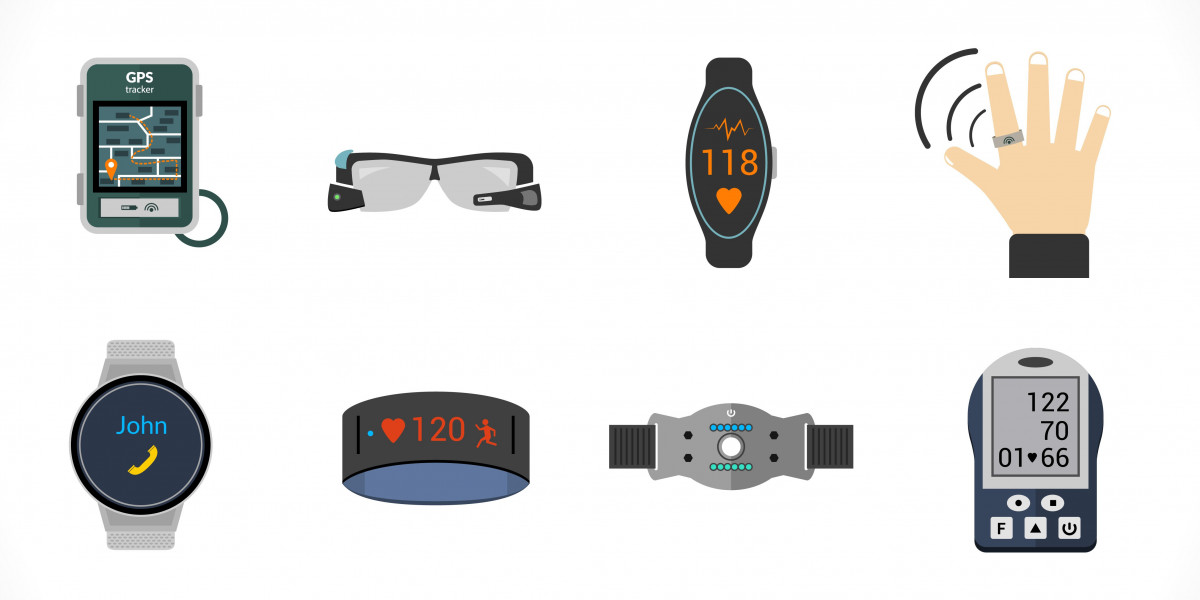Market Research Future Insights
According to MRFR analysis, The Wearable Technology market industry is projected to grow from USD 53.1 Billion in 2023 to USD 466.5 Billion by 2032, exhibiting a compound annual growth rate (CAGR) of 31.20% during the forecast period (2023 - 2032).
Wearables are items of electronic technology that can be comfortably worn on the body. These gadgets are either accessories or items of clothing. These devices employ sensors and can track data in real-time. The rise in demand for smartphones, mobile networks, mobile applications, computing broadband connectivity, and other related products is the primary driver of the wearable technology market's value.
The wearable technology sector opens up new possibilities in people's lives. The growth of niche markets, fewer competitors, low barriers, and the absence of standard devices will increase the size of the wearable technology market by the projection period.
The use of miniaturized sensors is a breakthrough in the medical and automotive industries. Increasing its popularity among the population, such as athletes and leisure activities, is predicted to generate beneficial demand for fitness and wellness activities. Increasing societal awareness throughout the COVID period, as well as the various benefits of electronics during this time, boosts the size of the wearable technology market.
Request Free Sample - https://www.marketresearchfuture.com/sample_request/2336
Market Segmentation
The report is segmented into five dynamics;
By Product: Wristwear (Smartwatch, fitness trackers), Headwear & Eyewear (Augmented reality, virtual reality), Neckwear (smart jewelery), Smart Clothing, Wearable Cameras, Implants, and others.
By Technology: Computing Technologies, Display Technologies, Networking Technologies, Sensor Technologies, and others.
By Components: Control, Memory, Battery, Sensing, Connectivity, and others.
By Application: Fitness & Wellness, Consumer electronics, Healthcare, Defense, Enterprise & industrial applications, and others.
By Regions: Asia Pacific, North America, Europe, and the Rest-of-the-World.a-Pacific, and the Rest of the World. North America is expected to account for the largest share of the market during the forecast period, followed by Europe and Asia-Pacific.
Key Players
The report profiles some of the key players in the global wearable technology market, including Apple Inc., Fitbit Inc., Garmin Ltd., Google LLC, Huawei Technologies Co. Ltd., LG Electronics Inc., Samsung Electronics Co. Ltd., Sony Corporation, Xiaomi Corporation, and others.
Introduction:
In today's fast-paced world, technology continues to shape and transform various aspects of our lives. One such technological marvel that has gained immense popularity is wearable technology. From smartwatches to fitness trackers, these innovative gadgets have become an integral part of our daily routines.
The Growth of Wearable Technology:
The wearable technology industry has witnessed a remarkable surge in recent years. This exponential growth can be attributed to several factors. Firstly, the increasing adoption of smartphones and the rise of the Internet of Things (IoT) have created a perfect ecosystem for wearable devices. With seamless connectivity and advanced features, wearables offer users convenient access to information and services right at their fingertips.
Secondly, the growing health and fitness consciousness among individuals has fueled the demand for fitness trackers and smartwatches. These devices provide real-time monitoring of vital health parameters, track physical activities, and offer personalized insights for a healthier lifestyle. From heart rate monitoring to sleep tracking, wearables have become essential tools for managing one's well-being.
Furthermore, the integration of artificial intelligence (AI) and machine learning (ML) algorithms has revolutionized the capabilities of wearable devices. They can now analyze user data, provide personalized recommendations, and even detect potential health issues. Wearable technology is not just limited to fitness; it has also found applications in industries such as healthcare, gaming, fashion, and entertainment.
Impact on Society: The widespread adoption of wearable technology has had a profound impact on various aspects of society. Let's explore some key areas where wearables have made a significant difference:
- Health and Wellness: Wearable devices have empowered individuals to take charge of their health. From tracking physical activity and sleep patterns to monitoring vital signs, wearables have become invaluable tools for proactive healthcare management. They enable users to set fitness goals, measure progress, and make informed decisions about their well-being.
- Healthcare Industry: Wearable technology has transformed the healthcare landscape, enabling remote patient monitoring, chronic disease management, and early detection of medical conditions. Doctors can access real-time patient data, improving diagnosis and treatment plans. Wearable devices also promote preventive care, reducing healthcare costs and improving patient outcomes.
- Workforce Productivity: Wearables have found their way into the workplace, enhancing productivity and safety. Smartwatches and smart glasses provide employees with instant access to information, real-time notifications, and hands-free communication. They improve efficiency in industries such as logistics, manufacturing, and field services.
- Personal Safety: Wearable technology has introduced new safety features to ensure the well-being of individuals. Emergency alerts, GPS tracking, and fall detection capabilities integrated into wearables provide peace of mind, especially for the elderly or those with specific health concerns.
- Fashion and Style: Wearable technology is not just about functionality; it has also become a fashion statement. Tech companies and fashion brands have collaborated to create aesthetically pleasing wearables that seamlessly blend with personal style. From smart jewelry to smart clothing, wearables have transcended their utility and become fashionable accessories.
Related Reports
Entertainment Robots Market Research Report - Global Forecast till 2030
Functional Safety Market Research Report - Global Forecast till 2030
Conclusion:
The wearable technology industry is experiencing a significant boom, transforming the way we live, work, and take care of our health. The integration of technology into everyday accessories has revolutionized personal well-being, productivity, and safety. As the industry continues to innovate, we can expect even more advanced wearables that cater to our evolving needs. Whether it's monitoring our health, staying connected, or expressing our personal style, wearable technology is here to stay, enriching our lives in ways we never imagined.








